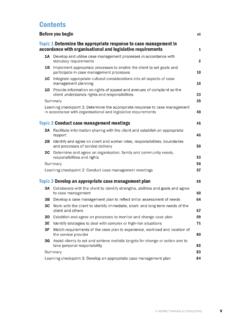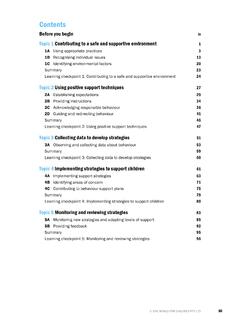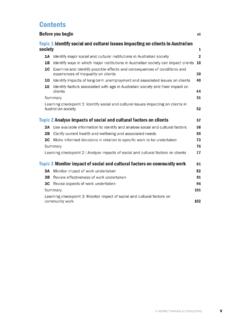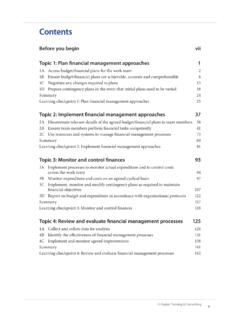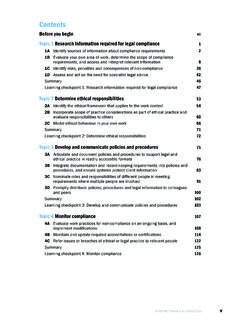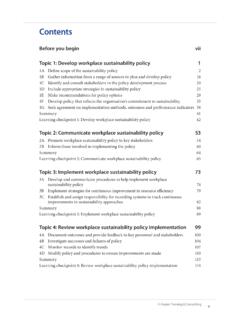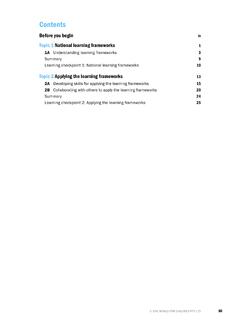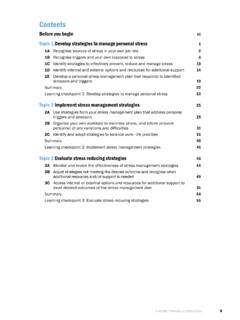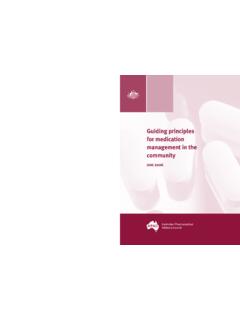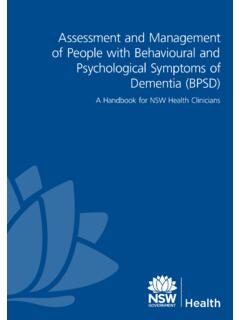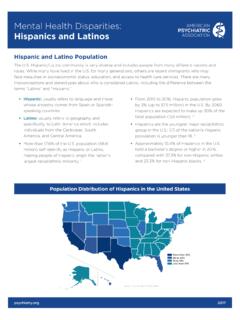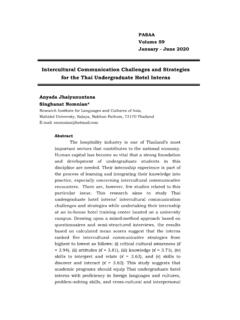Transcription of CHCAGE001 Facilitate the empowerment of older people …
1 ASPIRE TRAINING & CONSULTING vContentsBefore you begin viiTopic 1 Develop relationships 11A Conduct interpersonal exchanges to promote empowerment 21B Respect social, cultural and spiritual differences 71C Maintain confidentiality and privacy 111D Identify physical and social enablers and disablers 151E Share responsibility for better health outcomes and quality of life 22 Summary 28 Learning checkpoint 1: Develop relationships 29 Topic 2 Provide services 312A Identify and discuss services that empower the person 322B Support the person to express their own identity and preferences 382C Adjust services to meet specific needs 462D Provide services according to organisation policies, procedures and duty of care 51 Summary 58 Learning checkpoint 2.
2 Provide services 59 Topic 3 Support the rights of older people 653A Assist the person to understand their rights and the complaints mechanisms 663B Deliver services ensuring the rights of the person are upheld 713C Identify breaches of human rights and respond appropriately 773D Recognise signs of abuse or neglect 793E Assist the person to access other support services and the complaints mech-anisms 85 Summary 88 Learning checkpoint 3: Support the rights of older people 89 Topic 4 Promote health and reablement of older people 934A Encourage the older person to engage as actively as possible in all living activities 944B Assist the older person to recognise the impact of ageing 994C Identify strategies and opportunities that maximise engagement 1084D Identify and utilise aids and modifications to assist with independent living 1124E Discuss situations of risk or potential risk associated with ageing 115 Summary 119 Learning checkpoint 4.
3 Promote health and reablement of older people 120 ASPIRE TRAINING & CONSULTING 7 TOPiC 1 DEVELOP RELATIONSHIPS1B Respect social, cultural andspiritual differencesServices must provide support to a variety of people with different views and from different backgrounds, races, religions and cultures. The care you give must always be of the same standard. It should not be better or worse for one person compared with another. The support you give must change to allow for different needs but this does not mean giving a different standard of , attitudes and beliefsHow you demonstrate respect for others is often based on the values, attitudes and beliefs you hold. How often do you stop to really think about how you formed your values, attitudes and beliefs?
4 Why do you believe what you believe? Are your beliefs still true for you today as they were some years ago? Obviously family, culture, religious groups, peers, colleagues and so forth have helped you to develop your thoughts about things. However, we don t all share the same values and, as a support worker, you are required to ensure your values and beliefs do not impact negatively on the way you provide differencesThe people you support will differ in terms of their financial status, social background, sexual preference, religion and ethnicity; for example, Australian, Fijian, Croatian or may provide support to people who speak languages other than English. These people are often referred to as culturally and linguistically diverse (CALD).
5 Australia also has Aboriginal or Torres Strait Islander people . These people are indigenous to Australia and may also speak a language other than English. Services should meet the cultural needs of both CALD people and Indigenous is an example of strategies you can use to support people from CALD and Aboriginal or Torres Strait Islander brochures are available in languages other than English and use interpreting services for people who need services through cultural or ethnic groups and show how services can meet their people from what they want from the service and then implement strategies to meet their about the cultures and languages in the local areas the person has come from. ASPIRE TRAINING & CONSULTING 15 TOPiC 1 DEVELOP RELATIONSHIPS1D Identify physical and socialenablers and disablersAs people age, or acquire limiting conditions, physical changes can result in the person either reducing or eliminating the activities they once enjoyed.
6 Reduced social activity can result in a loss of confidence. Once people limit their interactive activities, they can become socially isolated and their physical health can decrease. Services have a legal responsibility to develop plans in conjunction with the person with care needs and, where relevant, family members and/or their advocate. These plans focus on the person s holistic needs (social, spiritual, physical, cognitive and emotional) and how the organisation will meet these term reablement refers to processes put in place to reduce the risk of unnecessary decline. The aim of reablement is to encourage, promote and assist people to continue to be socially, physically and recreationally active, thus reducing or removing the need for long-term ongoing or premature support.
7 Your role is to ensure you do not unnecessarily set up further dependencies by doing tasks the person is still able to do. For example, you may be very busy and trying to get through all the support tasks. Instead of allowing time for the person to complete the tasks they can do for themselves, you do the task for them to save time. What you are actually doing is setting up a dependency. This is very disempowering and can lead to a higher level of care than would otherwise be needed. Your role is to look at how you (and other parts of the service system) can work to support people to remain as independent as supportAdvocates can support a person with care needs to address barriers or disablers to remaining actively involved in the community.
8 Individuals who act on behalf of the person in an advocacy role can be a family member, a friend or a concerned community member such as a neighbour. You, as a support worker, may also advocate on behalf of a person with care needs to address barriers impeding their access to social and recreational networks. Confidential, free advocacy services are available specifically for people in receipt of services. You can read more about advocacy services at the following ASPIRE TRAINING & CONSULTING 19 TOPiC 1 DEVELOP RELATIONSHIPSHere are some ways you can find out what options, networks and services are social networksTeam meetingsOften other team members will have ideas that can help questions and keep team members experiences with various can subscribe to agency mailing publications can provide information on coming and local government departments often have calendars of events that may be accessed and seminarsAged care has industry-specific conferences that are well worth attending annually.
9 These conferences showcase a range of initiatives around social programs for older networksSome services are involved with like services in a geographic area and meet regularly. These networks can also provide further information on social networks in the servicesOrganisations such as the local neighbourhood centres, community health centres, churches and spiritual groupsDepending on which state you are in, there are advocacy or aged care interest groups that focus on getting better outcomes for older people . Some of these will have information on social networks and research the benefits to older people . ASPIRE TRAINING & CONSULTING 23 TOPiC 1 DEVELOP RELATIONSHIPSP rotect people s rightsSupport workers are in a good position to notice when a person s rights are not protected because they are in direct contact with them.
10 As a support worker, you can see when things have changed or if the person is sad or upset. These things may be clues that something is not for changes XXListen to the person. Ask questions and be willing to fix problems. By doing this, you may notice when something is wrong. Workers who rush may miss things. All workplaces get busy and you may not always have the time for long talks. However, being busy does not excuse poor-quality with issuesXXMake the most of your time with each person. If there is an issue that you do not have time to deal with straight away, make a plan to talk about it next time you see the person. If you do not have time to talk about the issue at all, make sure you report it to your supervisor, the person s family or a colleague.
